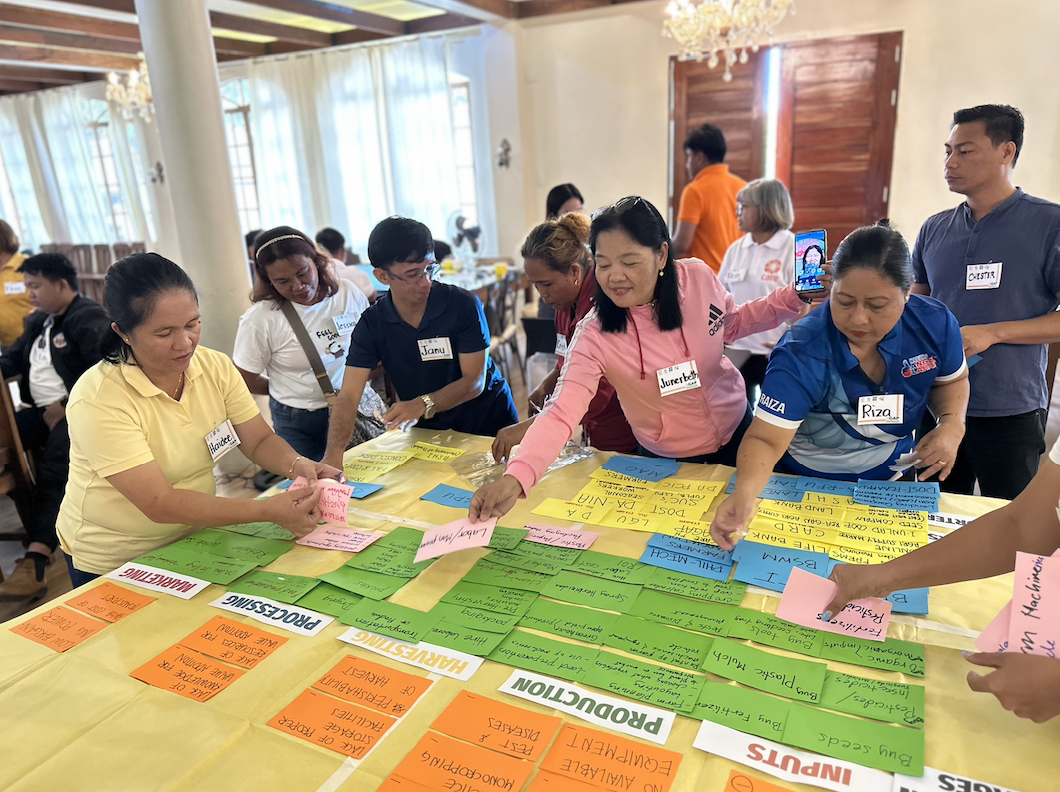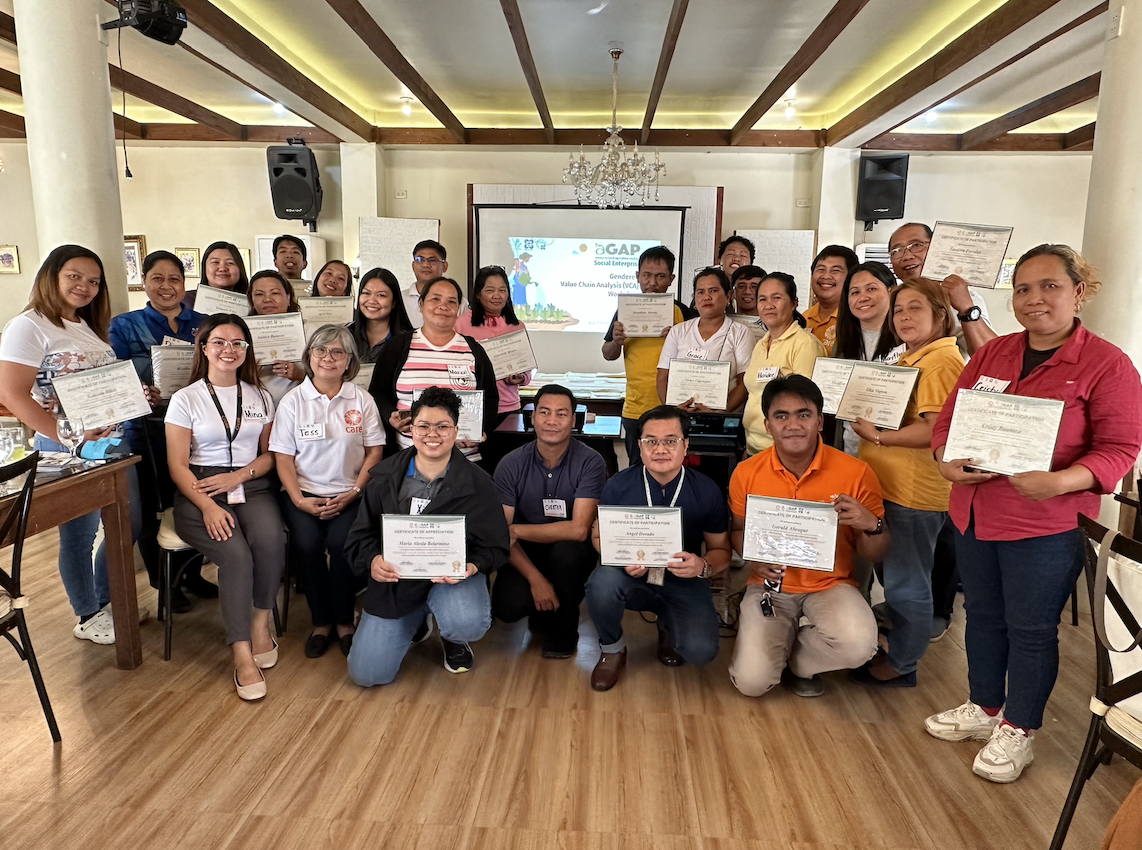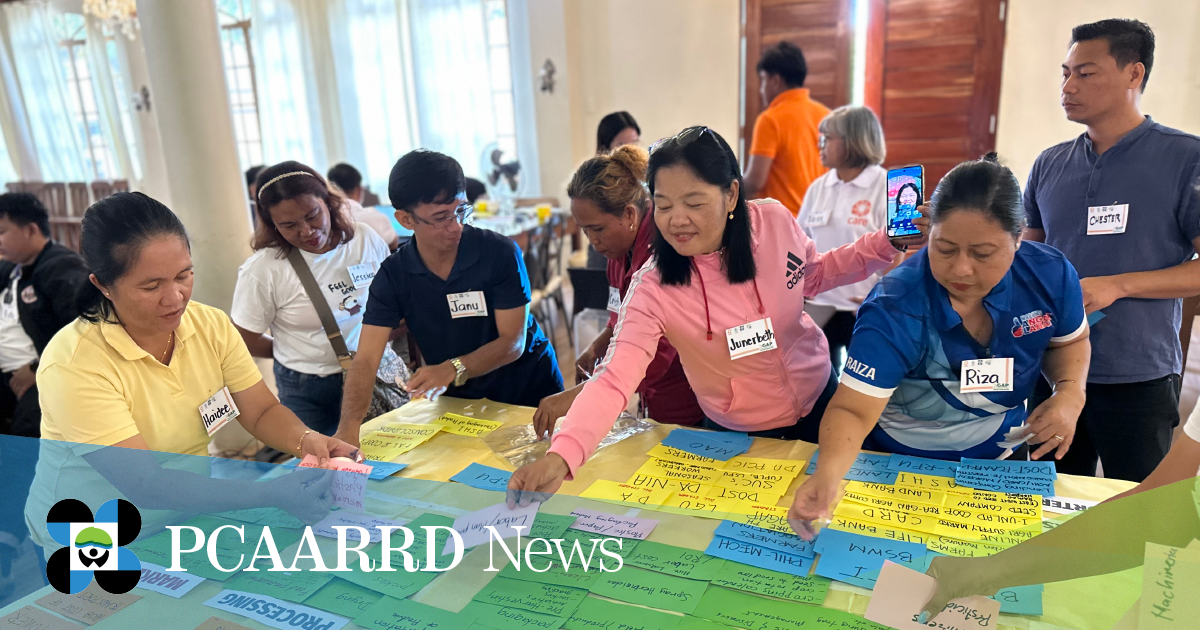Women play a pivotal role in agricultural communities worldwide as they actively participate in every stage of agricultural production along the value chain. Beyond their labor in the fields, women often take other responsibilities, such as managing household finances, taking care of family members, and engaging in community development initiatives. Despite their significant contributions, women in agricultural communities often face various challenges, including limited access to resources, land tenure rights, and decision-making power.
In a proactive step toward fostering gender equality and economic empowerment within agricultural communities, the Philippine Council for Agriculture, Aquatic and Natural Resources Research and Development of the Department of Science and Technology (DOST-PCAARRD) and the Cooperative for Assistance and Relief Everywhere (CARE) Philippines conducted a Gendered Value Chain Analysis (VCA) workshop in Siniloan, Laguna on March 14, 2024.
As part of the Asenso sa Good Agriculture Package (aGAP) Social Enterprise Project, the workshop discussed ways to give women more opportunities to make money in farming communities. It was attended by 12 women and 8 men municipal local government units (MLGU), aGAP Roving Agents (ARAs), farmer leaders, input suppliers, traders, and service providers. The workshop focused on the vegetable value chain in Famy, Mabitac, Pangil, and Sta. Maria, Laguna.
The aGAP Social Enterprise Project, led by CARE's Women Economic Justice program, aims to boost farmers' resilience by improving productivity, profitability, and income. The project provides various agricultural solutions by offering quality seeds, tools, knowledge sharing, insurance, financial aid, and market access. Given their mutual goal of providing comprehensive solutions for sustainable agricultural enterprises, DOST-PCAARRD and CARE collaborate to deliver innovative solutions, connecting farmers with buyers to enhance their competitiveness in meeting market demands.
The project emphasizes gender-responsive and risk-informed interventions to enhance its impact, including a gender-focused examination of value chains aligned with CARE's Gender Equality Framework (GEF).

Participants, including farmer-leaders, input suppliers, service providers, agricultural roving agents (ARAs), and representatives from the Municipal Agricultural Office (MAO) from Famy, Mabitac, Pangil, and Sta. Maria, Laguna mapping the value chain. (Image credit: SERD, DOST-PCAARRD)
Participants were asked to study the vegetable value chain carefully. They learned about the different parts of the value chain, the people involved, and how things change in the sector. The participants also assessed how gender plays a role in each step of the value chain, noticing differences in how people access resources, control things, and benefit from them.
By focusing the analysis on the target municipalities, workshop participants identified the challenges and opportunities unique to the areas. The workshop results would be validated with other relevant stakeholders in the municipalities selected. This personalized method helps DOST-PCAARRD and CARE Philippines create specific plans that meet women farmers' unique needs and goals.
The Gendered VCA workshop highlighted the aGAP Social Enterprise Project’s commitment to promote inclusive agricultural development. By incorporating gender equality principles into its core initiatives, the project paves the way for more equitable and sustainable farming communities, empowering all stakeholders involved in the agricultural value chain.


